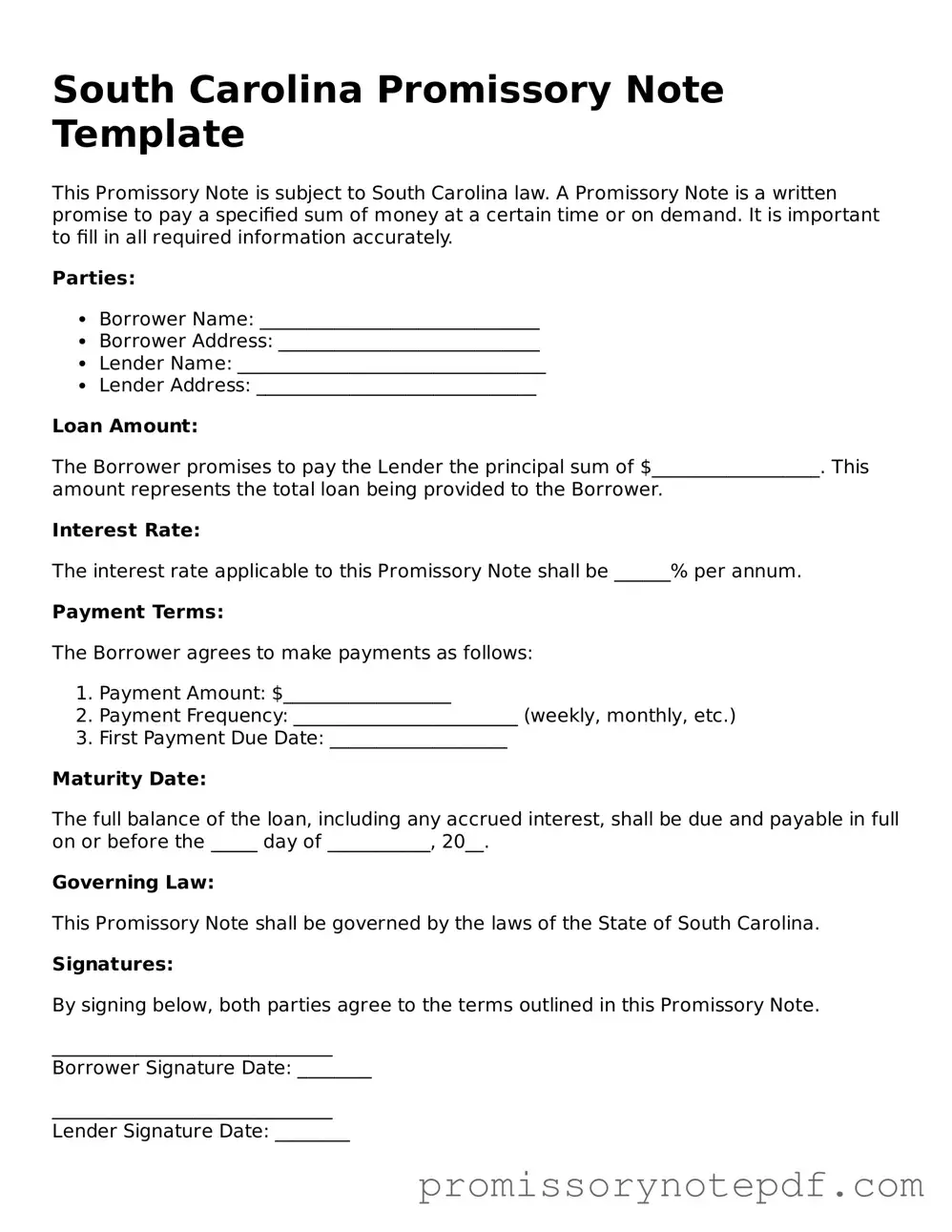A South Carolina Promissory Note is similar to a Loan Agreement, as both documents outline the terms of borrowing money. A Loan Agreement typically includes details such as the loan amount, interest rate, repayment schedule, and any collateral involved. Like a Promissory Note, it serves as a legally binding contract, ensuring that both the lender and borrower understand their obligations. However, Loan Agreements often provide more comprehensive terms and conditions, making them suitable for larger or more complex transactions.
Another document similar to a Promissory Note is a Mortgage. While a Promissory Note represents a promise to repay borrowed money, a Mortgage secures that promise with real property. In essence, the borrower pledges their property as collateral for the loan. If the borrower defaults, the lender can initiate foreclosure proceedings to recover the owed amount. Both documents work together in real estate transactions, with the Promissory Note detailing repayment and the Mortgage providing security.
A Personal Guarantee is also akin to a Promissory Note, especially in business contexts. This document involves an individual agreeing to be personally responsible for a debt if the primary borrower defaults. Like a Promissory Note, it establishes a clear obligation. However, a Personal Guarantee adds an extra layer of security for lenders, as they can pursue the guarantor’s personal assets in case of non-payment.
Similar to a Promissory Note is an Installment Agreement. This document outlines a plan for paying off a debt in regular installments over time. While a Promissory Note may be a single promise to pay a specified amount, an Installment Agreement breaks down the repayment into manageable chunks. Both documents provide clarity on payment terms, but the Installment Agreement focuses more on the schedule of payments rather than the overall debt structure.
A Credit Agreement shares similarities with a Promissory Note, particularly in lending scenarios. It outlines the terms under which credit is extended, including the amount, interest rate, and repayment conditions. While a Promissory Note is a straightforward promise to pay, a Credit Agreement may include more complex terms, such as fees, covenants, and conditions that must be met by the borrower throughout the credit period.
A Secured Note also resembles a Promissory Note, as it involves a borrower’s promise to repay a loan. The key difference lies in the collateral aspect; a Secured Note is backed by specific assets, which provide additional security for the lender. In the event of default, the lender has the right to seize the collateral. Both documents establish the obligation to repay but differ in the level of security provided.
Lastly, a Forbearance Agreement is similar to a Promissory Note in that it involves a borrower and lender agreeing on the terms of debt repayment. This document typically arises when a borrower is struggling to make payments and seeks temporary relief. A Forbearance Agreement outlines how payments may be postponed or adjusted, while a Promissory Note focuses on the overall repayment of a loan. Both documents aim to clarify the terms of the financial relationship, albeit in different circumstances.
